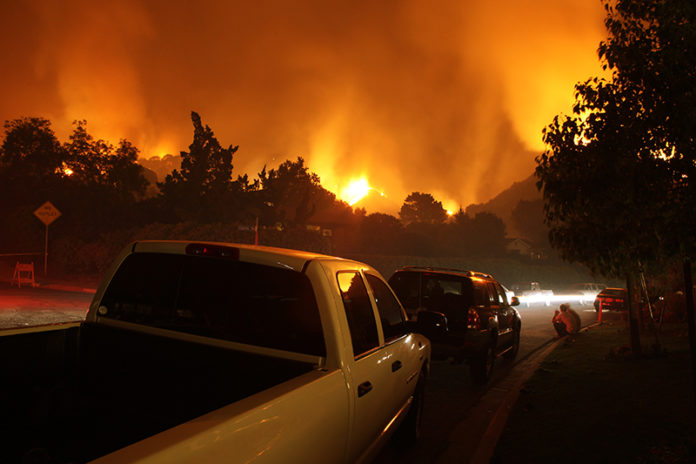SF-based crowdfunder YouCaring pulls the plug on California Growers Association fund for fire victims.
Trying not to be angry. Was just informed by the payment processor for the wildfire relief fund that they have reversed the payments because they can’t process ‘cannabis transactions.’ I didn’t realize contributions to wildfire recovery were considered ‘cannabis transactions.’”
That’s what Hezekiah Allen, executive director for the California Growers Association, posted on Facebook after San Francisco-based crowdfunding platform YouCaring shut down CGA’s donation page for victims of major wildfires blazing in Northern California.
With the more than 100,000-acre wildfires still not fully contained and ashes smoldering in burned-out areas, nonprofit industry payment processor WePay said it axed the campaign for violating its terms of service, which do not allow cannabis-related transactions.
Obstacles will not stop cannabis industry fundraisers, benefits, and relief efforts to help those affected by what may be the biggest fire disaster in California history. Initial loss estimates are in the billions, and cannabis business owners are without federal emergency relief funds or business insurance due to federal prohibitions on cannabis.
Adding to the burden for affected growers in fire-decimated Sonoma, Mendocino, Napa, and other counties, the fires occurred mid-harvest, less than three months before recreational sales were to start.
Andrew Lopes’s Santa Rosa-based Mystic Springs Farms burned down to two crumbling chimneystacks. He lost his entire operation, including 2,500 pounds of harvested cannabis, 900 plants, $10,000 in cash (that was not secure in a bank—again, due to federal prohibition and restrictions on cannabis transactions), vehicles, equipment, and an eighteenth-century farmhouse. He said he plans to rebuild.
After YouCaring and WePay shut down the fundraiser, CGA created a donation page on its website to accept contributions. The goal: $25,000 to aid industry fire victims.
CGA partnered for the fundraising effort with California Growers Association-Sonoma County, Cannabis Alliance-Mendocino County, Growers Association-Humboldt County, Growers Alliance-Nevada County, and The Cannabis Alliance; more fundraising partners are expected to join the cause. “One hundred of donations will go to those in need.”
Two weeks after the fires started, Allen told media outlets thirty-four cannabis farms had been extensively damaged. No specific number of cannabis industry members affected by loss of housing, property, or resources had been determined by late October. Media outlets reported a lack of temporary housing in the burn areas as evacuation orders were suspended, shelters closed, and residents returned to burned-out homes and businesses.
In Sonoma County alone, twenty-five farms were destroyed, according to Allen, as well as three cannabis manufacturing businesses. Cannacraft, one of the larger manufacturers in Sonoma County, said fifteen of its greenhouses were destroyed. An estimated 5,000 cannabis farms call Sonoma home.
Allen also pointed out that while larger farms and manufacturers might be able to recover from extensive losses, many smaller cannabis farms and businesses already had been stretched financially by acquiring licenses before the launch of recreational sales in January. They might not weather the firestorm, he said.
News of YouCaring and WePay’s refusal to host the crowdfunder garnered national attention.
“We can process payments for campaigns to support victims of the Northern California fires, but not to support victims’ cannabis crops,” WePay head of marketing Jeremy Milk told CNN.
No explanation for the fires or their ferocity had been determined by late October, though theories ranged from downed power lines to climate change to overgrown brush. CalFire confirmed forty fatalities and said more than 5,700 structures were destroyed. Full containment of the wildfires was not expected until November 1.











